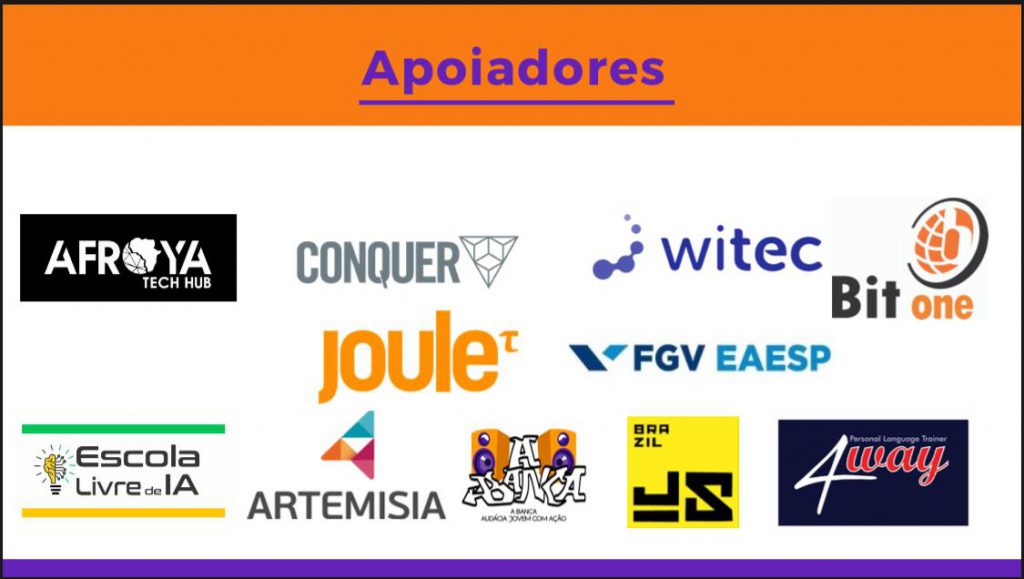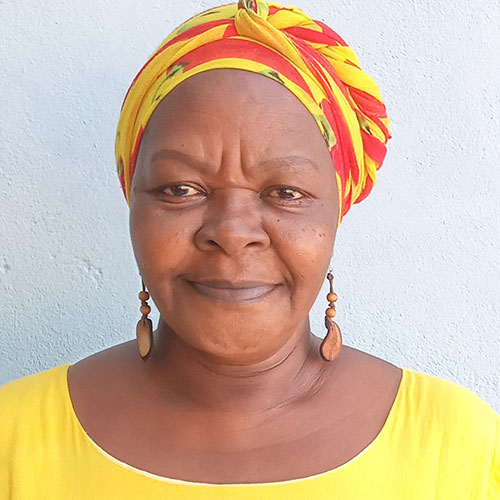+1Code brings young adults from the Brazilian favelas to the tech job market and trains programmers
The estimate is that in the next two years the country will need at least 500 thousand technology professionals


According to an article published by G1, on April 17 of this year, there are 50,000 job opportunities opening in Brazil, most of them for programmers and developers. It is estimated that in the next two years the country will need at least 500,000 technology professionals.
In 2019, two young people from São Paulo created the innovative project +1Code. The initiative trains young people from São Paulo’s favelas, so that they are prepared to, in the near future, occupy one of these vacancies as programmers.
To learn more about the project, I spoke with Tauan Matos de Souza, 27 years, CEO and one of the founders.
Neuza Nascimento: What is the +1Code?
Tauan: +1Code is an online social impact business that transforms low-income young people into problem solvers in their neighborhoods through technology, providing quality technological education, access to training paths and socioeconomic development for young people from the favelas. A project that was born in the hood for the hood.
Neuza Nascimento: How did you have the idea for the project?
Tauan: Since I was a child, this wasalready an idea in our heads, mine and my partner, Diogo. We wanted to create something that would help young people from the the hoods (in Portuguese, “quebrada”, a slagn for favelas) who have always been discredited, promote development and also provide opportunities. +1Code, as I said, was born from the hood to the hood. In this way, we managed to impact many young people who did not have a computer or the internet to access these resources and thus program existing opportunities, for example, today we have partnerships that help us through the participation of these young people, students of the course, in selection processes for be hired.

Neuza Nascimento: How did it all start? How did you put this idea into practice?
Tauan: +1Cod started to be designed at the very end of 2019 for 2020, we started with a very simple structure; two young people wanting to change the world, change the hood where they came from and bringing opportunities to other young people. Diogo, my partner, has a degree in Marketing and other courses in the commercial and communication areas and, based on our training, we have always been involved with young people from the favela. In this process, one of the young people from Jardim Pantanal, East Zone of São Paulo, came to us asking if we knew of any courses that taught programming, but in simple language. And there, it all started. Me passionate about technology, Diogo passionate about projects, we started looking for organizations that could help this young man. We visited some places, got in touch with people we knew and have already worked with programming and training, but we couldn’t find a course that actually taught in a simple language so that it could develop in a correct way. A course that used a language from the hood to the hood. That’s when we got together with two more friends who already worked as programmers – Cleyton, product manager at “Reclame Aqui”, and Horácio, founder of a software company. After that, we established a creation and structuring process, so that the project actually came to life. This is how +1Code was born. We started a prototype with two groups of students to feel what this teaching methodology would be like and, in this process, we joined around 20 young people who receive 100% follow-up. We always try to look at them and see what their skills would be for development to happen.
Since then, we’ve been perfecting it. Our first teaching model was and continues to be Peer to Peer, that is, a volunteer teacher for each student, with an average of two weekly classes, with daily support from our team.


Lupa do Bem: And what are the main things that students learn in +1Code?
Tauan: Learn, HTML, CSS and Java.
Lupa do Bem: Where does the name +1Code come from?
Tauan: What inspired the name of the project was mainly knowing that yet another young adult from the favela could enter the “tech” development market, and thus another “code” was born. Code, from encoder.
Lupa do Bem: How is the project team formed?
Tauan: We have an administrative team, I am responsible for managing communication and the strategic part, as CEO and founder; Diogo, is responsible for the commercial area, manages new products and partnerships; Priscila is responsible for the administrative and financial part; Kate, an educational assistant, accompanies the youth throughout the learning process and welcomes newcomers. And besides that, more than 80 mentors, who work voluntarily, are responsible for bringing knowledge in file form or remotely to students.


Lupa do Bem: Today, how many beneficiaries does the project have?
Tauan: We have around 160 young people already impacted, and just over 90 mentors, who are also beneficiaries. They benefit from having the satisfaction of being volunteers and some of them are paid to carry out specific actions within the project.
Lupa do Bem: What is the process to join the +1Code?
Tauan: Those interested register by filling out a form, go through a selection process and start the course the following month. The criterion for entry is to be a resident of the region and be in a situation of social and/or economic vulnerability.
Lupa do Bem: How is the project maintained?
Tauan:– Through partnerships, service sales. Many times companies look for us to build projects and, in a more passive way, we work with donations and also with improvements. Today, we have a group of companies that support us, such as Bit One, a company that sells technology systems to banks, Brasil JS and AFROYA Tech Hub, providers of service hubs; the ARTEMISIA group, people, and business accelerator; FGV – Fundação Getúlio Vargas; the Joule Institute, which is basically focused on helping these young powerhouses, the PLT4Way English School; the Free School of Artificial Intelligence; Banca Audácia Jovem com Ação, an organization within some suburbs here in São Paulo and others.
Lupa do Bem: What is the biggest challenge?
Tauan: Bringing young people, who feels discredited, is the biggest challenge. And also get in touch with these companies so that they have the vision that we want to help. These are the big challenges as an organization. The young people really believe in change, but since they don’t have a reference in the hood, it’s hard to see themselves as part of the project.
Lupa do Bem: Can you tell me about the victories?
Tauan: We have many. For example, the opportunity to see them being hired; seeing them learn to program on their cell phones and then receive a notebook, having the opportunity to actually program; having young people participating in universities and being the first of their families to be in that space.
Lupa do Bem: What stage is the project at today?
Tauan: Expanding. We are closing partnerships with good companies, including a company that works with a selection process totally focused on the technology area. It hires people through “Rototon”, an event for programmers. We also have a partnership with the company Tô Ricco – which teaches personal financial planning to young people, as there is no point in them being hired and not having a notion of how to invest, take care of the money received for their work. The salary of a junior programmer is something from 2 thousand reais, that for a young peripheral makes a very big difference.
Lupa do Bem: Would you like to add something else?
Tauan: We, Diogo and I, are young people from the periphery, and today we can see the difference that technology can make in the life of a young person under the same conditions. As it can, in fact, be impacted and change both his reality and that of his family, so we want to leave an invitation here for young people who are looking to learn a little more about technology. Come to +1Code! Even if you only have very basic knowledge or even no knowledge at all, so that they can, more and more, change the stories of their lives.
Did you like the project?
Click here to support or for more information.



